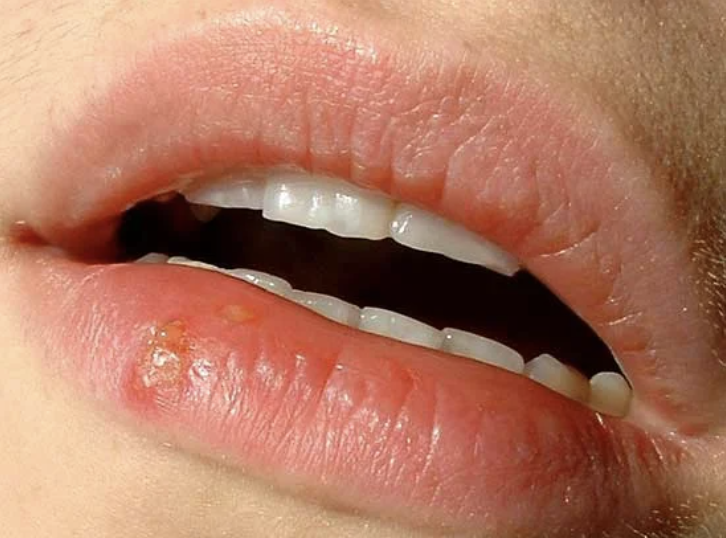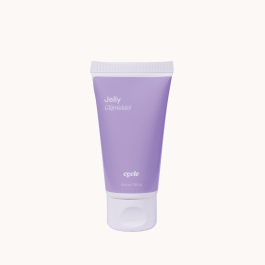Herpes genitalis: symptoms & treatment
Lots of people recognize this, as they too are treated to these red blisters whenever their immune system is weakened. But, did you know that cold sores are caused by the herpes genitalis virus and that it is an STI?
What is herpes genitalis?
Herpes genitalis is a virus, the so-called herpes simplex virus (HSV), that is transmitted through sexual contact in most cases. So, herpes is an STI (sexually transmitted infection). Herpes genitalis isn’t always transmitted through sex, by the way. It can also be transmitted by kissing someone who carries the virus, for example. It does help to use a condom, but it doesn’t guarantee that you won’t catch the virus. It may end up on the edge of the condom or a sex toy, or it can be transmitted by fingers. Contamination can happen at the drop of a hat!
There are two forms of this virus, HSV-1 and HSV-2. HSV-1 usually manifests itself as a cold sore, but it can also occur on the genitals. HSV-2 refers to genital herpes.
Once you’ve caught the virus, you can infect others. So, that isn’t only when you’ve got the blisters. Even without complaints, you can infect others, though the chances of it happening are smaller. Are you dealing with an active breakout (blisters) of the herpes genitalis virus? Pass on all sexual acts (plus kissing when you have a cold sore!) until all the blisters have disappeared.
Want to know more about gonorrhea?
Read moreWhat are the symptoms of herpes genitalis?
Lots of people carry the herpes genitalis virus, but not everyone will get symptoms of it. If you’re contaminated with the virus, you’ll often get symptoms after about 1 week (though it doesn’t always happen). The first outbreak is often the worst one. It commonly begins with a tingling sensation on the skin. Quickly after, you can start to feel quite sick with a fever and muscle aches. Your lymph nodes can also swell up since your body is trying to fight the virus. Don’t skimp on the paracetamol, since the blisters can be very pesky.
In men, herpes genitalis often results in painful blisters and/or sores on the penis, in the urethra, though they can also occur in and around the anus and the perineum (the piece of skin between the ball sack and the anus). You can also experience pain and a burning sensation when peeing or pooping.
In women+, herpes genitalis causes painful blisters and sores on the outer side of the vagina (the vulva), on the inner side of the vagina, around and inside the anus, and on the skin of the inner side of the thighs. These spots can feel painful, have a burning sensation, or be itchy. You can also experience pain when peeing or pooping and can have more vaginal discharge (moisture).
When you get one or multiple blisters on your mouth, they are the infamous cold sores. Herpes can also occur in the eyes and the central nervous system.

[source: Britannica]
The blisters and sores will quickly become fluid-filled blisters. The fluid might have a yellow tint to it, or it may contain a bit of blood or puss. These blisters will often dry out and disappear within a few weeks. Certainly don’t mess with them! They’ll heal on their own and in principle won’t leave any scars. The first outbreak can truly last multiple weeks. If you have outbreaks after that one, they will be shorter and less severe.
Herpes genitalis doesn’t go away. The virus will remain dormant within your body and doesn’t necessarily have to give you any further symptoms. If you’re unlucky, you might get another outbreak whenever your immune system is weakened. This could be when you have the flu, are very tired, or are on your period.
Treatment for herpes genitalis
Herpes genitalis can’t be cured. The virus will remain inside your body your entire life. Luckily, most people have little to no symptoms of it. It’ll often be restricted to the initial outbreak, with occasional new (more mild) outbreaks.
To help the blisters dry out more quickly, you can treat them with a cream that contains zinc oxide. Or you can rub a painkilling cream onto the blisters, such as a cream that contains lidocaine. Don’t apply these with your fingers, but use a cotton swab!
If you’re dealing with a severe outbreak with a lot of blisters, you can ask your GP for a medicine that inhibits the virus, which can make the blisters go away sooner. This is often the medicine valacyclovir. You’re supposed to start taking that as soon as possible after the outbreak has started, and you’ll take 1 pill of 500 milligrams a day for 5 days straight. If the outbreak has lasted for more than 5 days, this medication will not have an effect.
Herpes genitalis and being pregnant
If you contract the herpes virus during pregnancy, we advise you to bring this up with your doctor and/or midwife. A birth during an active outbreak can be dangerous for the baby, which is why your healthcare providers should know about it!
Tell your sex partner(s)
It’s common sense that you should tell your sex partner(s) if you’ve contracted the virus. This can be awkward, but it’s better to speak up about it! Are you too scared to do it? Within the Netherlands, you can use partnerwaarschuwing.nl to help you. Your sex partner(s) will receive a message about the STI. Either with or without your name, you can decide that for yourself. If you live outside of the Netherlands, check whether a similar service is available to you.
Want to know more? Take a look at Soaaids.nl.



























